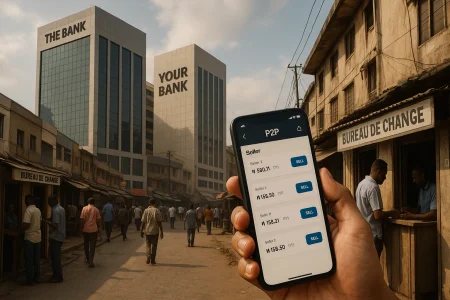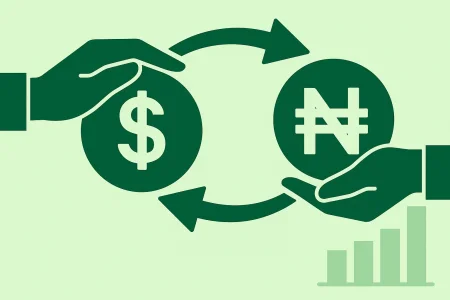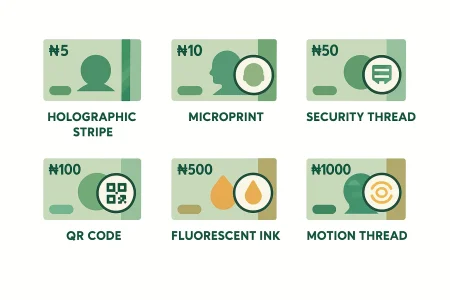In the digital age, the convenience of online banking comes with potential risks. Cybercriminals are also developing new tactics to hack bank accounts as technology evolves. Like many other countries, Nigeria faces the growing threat of account hacking. As vigilant account holders, it is essential to understand how bank accounts are compromised in Nigeria and take proactive measures to protect our finances. This article sheds light on hackers' eight primary methods and provides valuable tips on safeguarding our hard-earned money.

Image by Gerd Altmann from Pixabay
Phishing Scams
Phishing is a common way for hackers to gain access to personal information. They will send fake emails, messages, or calls that appear to be from trusted organizations like banks and ask for sensitive details such as login information. Confirming the sender's legitimacy before responding to any requests for personal information is crucial.
Social Engineering
Hackers are adept at manipulating human emotions. They exploit social engineering techniques to gain sensitive information, often tricking victims into revealing account details through seemingly innocent conversations or social media interactions. Be cautious about sharing any personal information with unknown individuals online.
Weak Passwords
It is important to use strong and unique passwords for online accounts to prevent unauthorized access by hackers. Avoid using easily guessable information like common phrases or birthdates. Instead, create passwords that include a combination of letters, numbers, and symbols for each account to increase its complexity and make it harder for hackers to crack.
Malware and Keyloggers
Malicious software, such as keyloggers, can be covertly installed on devices to record keystrokes, including login credentials and other sensitive information. Always keep your antivirus software up to date and avoid downloading files from untrusted sources.
SIM Swapping
Hackers may impersonate individuals or contact telecom providers to swap SIM cards, diverting all communication and authentication messages to their devices. Always verify any unusual SIM swap requests with your telecom provider to prevent this attack.
Fake Banking Apps
Cybercriminals create fake banking apps that resemble legitimate ones to trick users into entering their login details. Only download mobile banking apps from official app stores and verify the app's authenticity with your bank.
Public Wi-Fi Vulnerabilities
Using public Wi-Fi networks without proper security can expose your sensitive data to hackers. Avoid logging into your bank accounts or conducting financial transactions while connected to unsecured Wi-Fi networks.
Insider Threats
Unfortunately, some hacking incidents involve insiders who have access to sensitive information. Banks take measures to prevent such incidents, but it's crucial to be cautious about sharing account details with anyone, even bank employees.
While technology offers unprecedented convenience in managing our finances, it also presents significant risks regarding account security. Knowing hackers' primary methods to compromise bank accounts is the first step in safeguarding our financial well-being. Stay vigilant, regularly monitor your accounts for suspicious activity, and follow best practices to protect your personal information. Taking these precautions can ensure a more secure banking experience in Nigeria and reduce the risk of bank account hacking.

Image by Gerd Altmann from Pixabay
Phishing Scams
Phishing is a common way for hackers to gain access to personal information. They will send fake emails, messages, or calls that appear to be from trusted organizations like banks and ask for sensitive details such as login information. Confirming the sender's legitimacy before responding to any requests for personal information is crucial.
Social Engineering
Hackers are adept at manipulating human emotions. They exploit social engineering techniques to gain sensitive information, often tricking victims into revealing account details through seemingly innocent conversations or social media interactions. Be cautious about sharing any personal information with unknown individuals online.
Weak Passwords
It is important to use strong and unique passwords for online accounts to prevent unauthorized access by hackers. Avoid using easily guessable information like common phrases or birthdates. Instead, create passwords that include a combination of letters, numbers, and symbols for each account to increase its complexity and make it harder for hackers to crack.
Malware and Keyloggers
Malicious software, such as keyloggers, can be covertly installed on devices to record keystrokes, including login credentials and other sensitive information. Always keep your antivirus software up to date and avoid downloading files from untrusted sources.
SIM Swapping
Hackers may impersonate individuals or contact telecom providers to swap SIM cards, diverting all communication and authentication messages to their devices. Always verify any unusual SIM swap requests with your telecom provider to prevent this attack.
Fake Banking Apps
Cybercriminals create fake banking apps that resemble legitimate ones to trick users into entering their login details. Only download mobile banking apps from official app stores and verify the app's authenticity with your bank.
Public Wi-Fi Vulnerabilities
Using public Wi-Fi networks without proper security can expose your sensitive data to hackers. Avoid logging into your bank accounts or conducting financial transactions while connected to unsecured Wi-Fi networks.
Insider Threats
Unfortunately, some hacking incidents involve insiders who have access to sensitive information. Banks take measures to prevent such incidents, but it's crucial to be cautious about sharing account details with anyone, even bank employees.
While technology offers unprecedented convenience in managing our finances, it also presents significant risks regarding account security. Knowing hackers' primary methods to compromise bank accounts is the first step in safeguarding our financial well-being. Stay vigilant, regularly monitor your accounts for suspicious activity, and follow best practices to protect your personal information. Taking these precautions can ensure a more secure banking experience in Nigeria and reduce the risk of bank account hacking.




